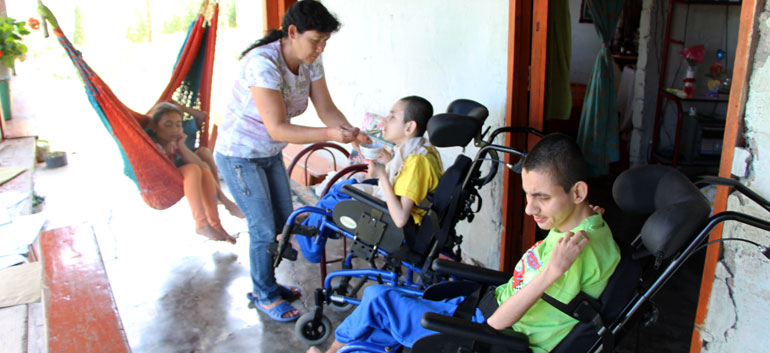Colombia’s Constitutional Court has decided to allow the sterilization of mentally disabled minors in certain cases despite contradicting a previously signed UN charter and resistance from human rights groups, claimed newspaper El Tiempo on Monday.
The Constitutional Court will reportedly approve the forced sterilization of minors with “severe and permanent” mental handicaps and when a pregnancy threatens the life of the minor for physical reasons, reported El Tiempo.
Judges for the court will reportedly extended a ban on all other forms of forced sterilization.
The actual court decision has not yet been released but the expected ruling is reportedly due to the cognitive inability of several mentally handicapped children to decide whether or not to become a parent, said the Colombian newspaper. Forced sterilization would reportedly require a request from the child’s parents or guardians and successful judicial approval.
The news has brought widespread backlash from human rights groups. According to El Tiempo, a social development program working with the University of the Andes in Bogota called ” The Program of Action for Equality and Social Inclusion” known by its acronym PAIIS, will advocate a ban to the sterilization of mentally handicapped minors before a hearing of the Inter-American Commission for Human Rights – IACHR – on March 24.
The practice of sterilizing minors, mentally disabled or not, violates two articles of the UN’s Convention on the Rights of Persons with Disabilities which Colombia ratified in 2009. The Director of PAIIS Andrea Parra reportedly stated that sterilizing disabled minors violates Articles 12 and 23 of the UN Convention.
Article 23 explicitly states that “Persons with disabilities, including children, (must) retain their fertility on an equal basis with others.” This part of the convention indicates that sterilizing mentally disabled minors does in fact violate Colombian law.
The Ministry of Health reportedly informed El Tiempo that 732 mentally disabled minors were sterilized between 2009 and 2012. The majority of the sterilized were females, representing 505 of these sterilized minors. The remaining 127 were male.
A consequent problem that health experts and human rights activists worry about is a reported increase in sexual abuse towards sterilized mentally disabled persons. According to Parra the risk of rape and sexual abuse of the mentally handicapped becomes more dangerous after sterilization because an attacker would presumable know that the victim could not become pregnant, said El Tiempo.
The development program PAIIS could not be reached for contact.
Sources
- Polémica por esterilización de niños con déficit mental (El Tiempo)
- Limitación a la capacidad legal de las mujeres y niñas con discapacidad y su influencia en el ejercicio de sus derechos sexuales y reproductivos (PAIIS)
- CONVENTION on the RIGHTS of PERSONS with DISABILITIES (United Nations)
- Esterilizar menores con déficit mental sí pero tras junta médica: especialista (Blu Radio)




